Big Red Book
Celebrating television's This Is Your Life
Brigadier Dame Margot TURNER DBE, RRC (1910-1993)
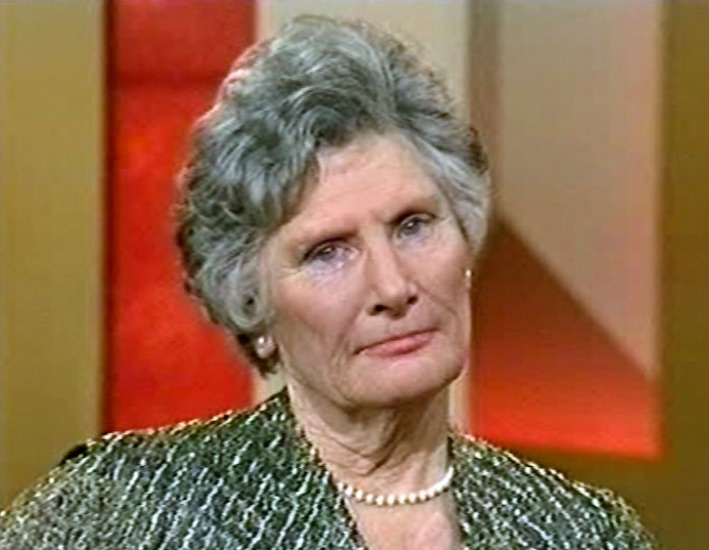
THIS IS YOUR LIFE - Margot Turner, military nurse and nursing administrator, was surprised by Eamonn Andrews at the Frimley Park Hospital in Surrey, while volunteering in the hospital shop.
Following her training at St Barts, Margot joined the Queen Alexandra's Imperial Military Nursing Service in 1937, and was stationed in the Far East during the Second World War. After the Japanese invaded Singapore, Margot fled the colony only to be captured and imprisoned, spending the remainder of the war in a Japanese prisoner-of-war camp in Sumatra.
After the war she resumed her career with the Queen Alexandra's Royal Army Nursing Corps, working her way through the ranks as Matron-in-Chief, then Director and finally, on her retirement in 1968, the highest rank in her profession, Colonel Commandant of the Nursing Corps.
"Urm... well let me go and change and let somebody know! So, do you want me to come now?"
programme details...
- Edition No: 478
- Subject No: 476
- Broadcast date: Wed 1 Feb 1978
- Broadcast time: 7.00-7.30pm
- Recorded: Wed 25 Jan 1978
- Venue: Euston Road Studios
- Series: 18
- Edition: 11
- Code name: Spin
on the guest list...
- Col Peter Turner - brother
- June - sister-in-law
- Georgina - niece
- Duggie - nephew
- David - nephew
- Valia - David's wife
- Michael - David's son
- Christopher - David's son
- Jill - David's daughter
- Nicholas - David's son
- Dr Eric Gardner
- Eileen Dodd
- Dr Austin Best
- Netta Smith
- Maudie James
- Jenny Pemberton
- Mavis Allgrove
- Jenny Taylor
- Audrey Owen
- Marguerite Carruthers
- Ena Murray
- Christine Cleveley
- Mamie Colley
- Shelagh Lea
- Olive Bayliss
- Norah Chambers
- Sister Catherina
production team...
- Researcher: Lavinia Warner
- Writer: John Sandilands
- Directors: Royston Mayoh, Terry Yarwood
- Producer: Jack Crawshaw
examining the medical profession
Magic Book That Opens New Chapters Of Life
TV Times feature on 'The Unsung Heroes'
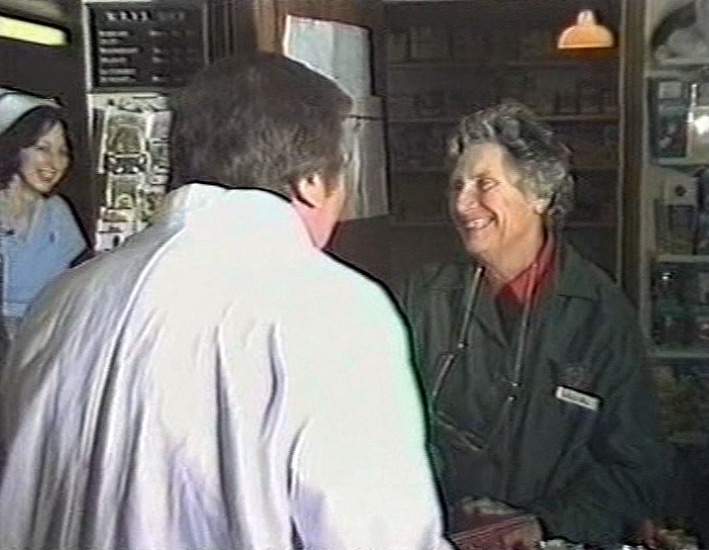
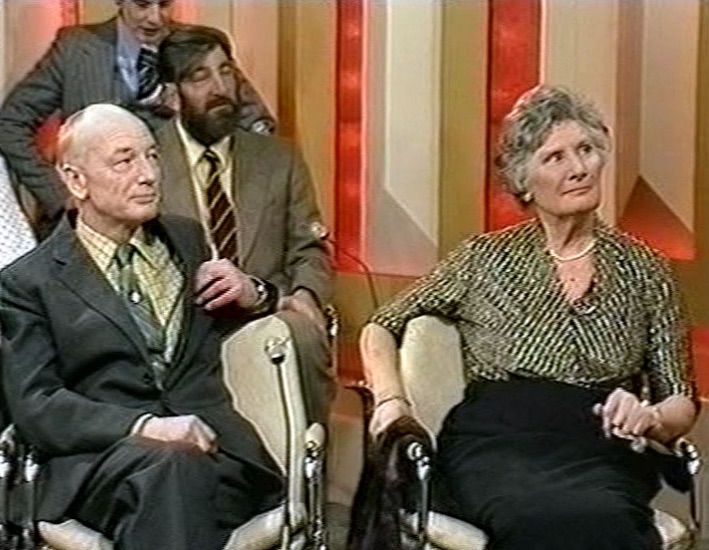
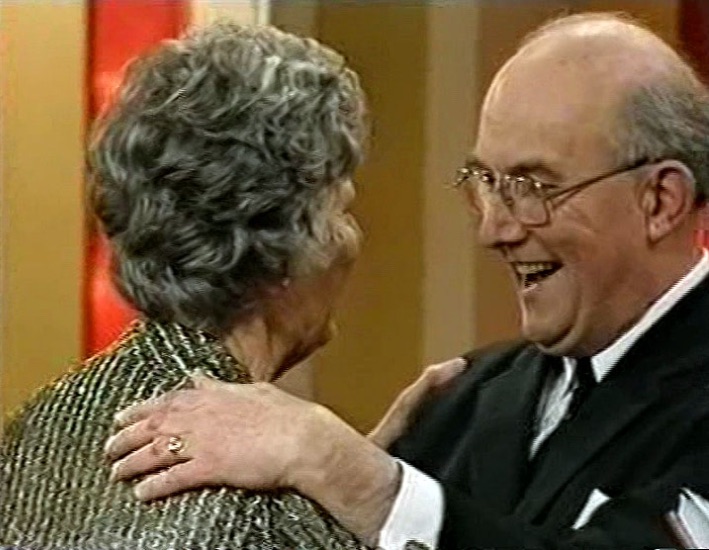


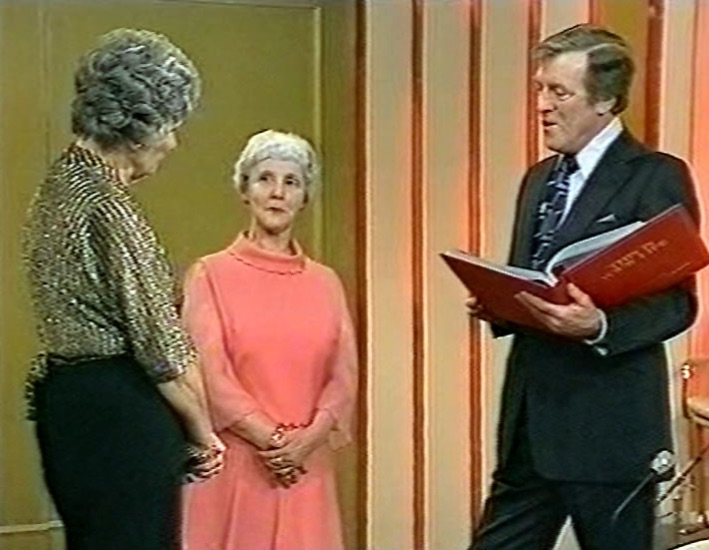

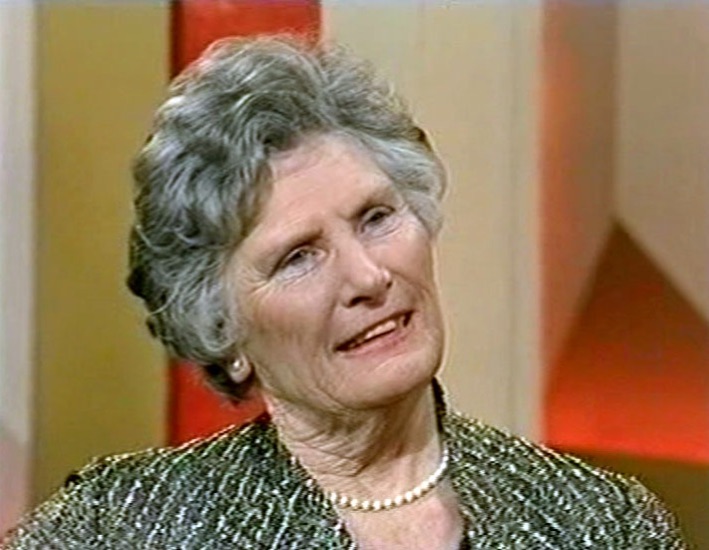
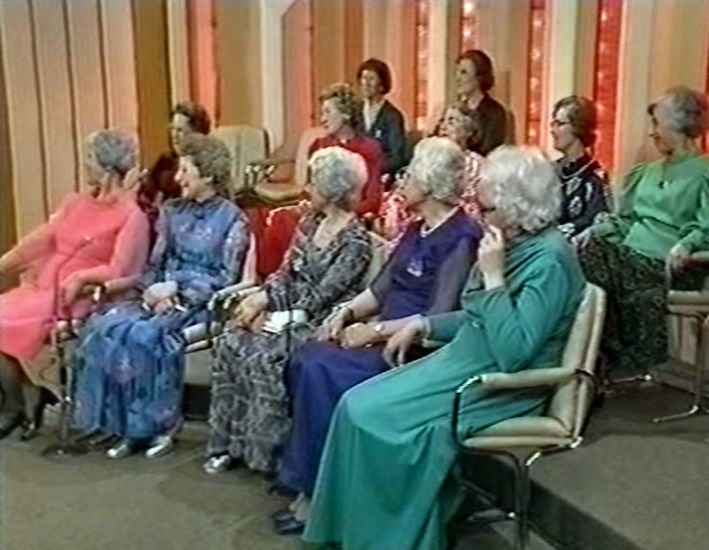
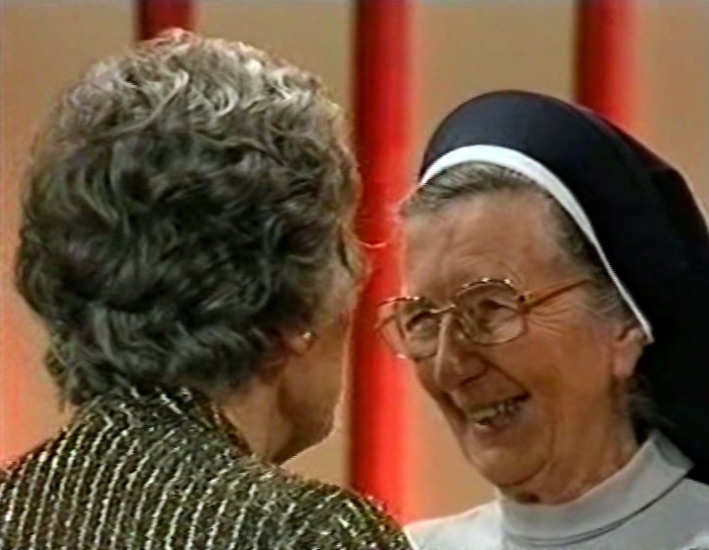


Screenshots of Margot Turner This Is Your Life
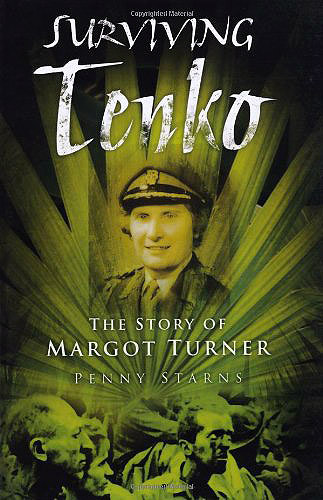
Dame Margot retired in 1968 and became the colonel commandant of the nursing corps. She continued to stay very active and spent a considerable amount of time catching up with her many friends.
During the 1970s a hugely popular biographical Thames Television programme, named This Is Your Life, chose to honour the life of Brigadier Dame Margot Turner. The programme was presented by Eamonn Andrews and followed a similar format each week. The subject of the programme was taken through the events of their life and reunited with people who had played a key part in their lives, and who recalled anecdotes and important issues along the way. The first time the producers tried to make a programme about Margot she discovered that something was afoot and put a stop to the whole process. However, Margot's friends were so distraught that they pleaded with the producers to make a second attempt at surprising Margot and highlighting her achievements. Thus, on 25 January 1978 Margot became the reluctant star of the television series.
It was, by anyone's standards, a momentous and highly moving programme. Lavinia Warner was a young researcher for the programme at the time and it was her job to locate and reunite the survivors of Margot's Japanese prisoner-of-war camp. She later recorded the atmosphere of the programme that entered people's living rooms across Britain on that cold, wintry Wednesday evening and documented her thoughts about the truly amazing women who were reunited:
They were not young, nearly forty years had passed since the events they were asked to describe, but there was alertness and firmness in their manner that did not make age the first aspect of them that a stranger would notice. They tended to be conventionally dressed: muted colours, discreet fabrics, neat coiffures. You would not single them out except for that air of self possession. At every stage of the programme's preparation they tested politely but warily for any hint of extravagant attitudes or indifferent taste. They were there to pay a tribute to Margot Turner, whom they all regarded highly, and even an audience of some twenty million viewers was not going to tamper with their natural restraint.
In the event, as the programme unfolded, they were admirable. They told their stories with brevity and humour then withdrew gracefully to take their places with the rest of the guests. There was no suggestion of the extraordinary revelation that was in the offing as the programme came to its end.
The women had agreed to sing a hymn composed in the camps by a missionary who had died there. It was known to them as the 'Captives Hymn' and it had been sung at all religious services which had continued, against bitter odds, every Sunday until freedom came. Now this little group of survivors from those days gathered round Margot Turner and, unaccompanied as they had been then, and a little hesitantly at first in these strange surroundings, they began to sing. But as the words flooded back and their confidence grew there was a truly remarkable transformation. The years visibly fell away from them and the cloak of their reserve disappeared so that they were young women again, vulnerable, beleaguered, a little afraid but taking strength from each other as they must have done then.
Sensing the uniqueness of the moment the camera lingered on their faces and through its insistence all were quite discernibly immeasurably distant in time and place from a television studio in central London and under the gaze of millions of strangers. It was suddenly apparent that an extraordinary sisterhood had existed between these women in those days when they had faced a common peril and had last sung the 'Captives Hymn' together.
The reluctant heroine and star of the show, Margot was also deeply moved by this powerful reunion:
"In our camp we had put up with each other, and of course we were great friends. On the whole we got on. It was wonderful on This Is Your Life to see some of the people I had not seen since we left the camp in 1945. It all started again just like we'd seen each other last week or the week before, it was a wonderful reunion."
The remarkable and powerful reunion prompted Lavinia Warner to conduct more research into the subject of women who were interned by the Japanese, and along with another producer, John Sandilands, she produced the highly successful and long-running television series entitled Tenko.
The Independent 12 October 1993
By: JOHN SANDILANDS
Margot Evelyn Marguerite Turner, military nurse: born London 10 May 1910: nurse, Queen Alexandra's Imperial Military Nursing Service 1937-1949, QARANC 1949-74, Matron-in-Chief and Director, Army Nursing Services 1964-68, Colonel-Commandant, QARANC 1969-74; MBE 1946, DBE 1965; died Brighton 24 September 1993.
A FORMER Colonel Commandant of the Queen Alexandra's Royal Army Nursing Corps claimed to have spotted the high potential of Margot Turner, eventually Matron-in-Chief and Director of Army Nursing Services, on Turner's very first day as a military nurse in 1937. She was, to the end, a tall, handsome woman with a warm smile and a wholly unforced air of authority and was clearly intended by nature to make a mark in the world. It would have taken rather more prescience, however, to have foreseen her remarkable experiences in the Second World War, or her subsequent connection with a television programme, Tenko (1981- 84), watched by millions.
After joining what was then Queen Alexandra's Imperial Military Nursing Service, "the QAs" - largely, she would later say, because she was attracted by their bright red uniform cloaks - Turner's first overseas posting was to India and, after war broke out in Europe, to Malaya, as trouble threatened in the Far East. Lively, athletic, good at swimming, golf and tennis, she briefly enjoyed the peace of Singapore in early 1941 and with other QAs was much in demand at that famous rendezvous, Raffles Hotel.
She served as a theatre sister at a hospital in up-country Malaya, and when the Japanese struck, and moved on Singapore, worked there amid the bombing and shelling. When all the patients were evacuated from a hospital on the Johore Strait, she retired beneath a billiards table with another nurse and a bottle of brandy from the medical stores. "After a number of swigs," she remembered, "the barrage became nothing like as terrifying."
Eventually, and belatedly, British and Australian military nurses and civilian women and children were evacuated.
The escape fleet was ambushed in the narrow waters off Sumatra, and Turner's ship was sunk in an air attack, the aircraft returning to machine-gun those struggling in the water. After three days on a deserted islet she was picked up by another vessel crammed with women and children, which was then sunk by gunfire from a Japanese warship.
With another QA she swam until she had assembled 16 survivors on a raft, six of them children and two of these babies under one year old. Waterless under a blazing sun, the children went mad and one by one died. "I examined each of them with great care before committing their little bodies to the sea," she recalled. "The last one was a very small baby and it was difficult to know when it was dead."
By the third day Turner was the only one left alive. She ate seaweed and, having somehow retained her powder compact, was able to catch some water when briefly it rained on the third night. The next day she was picked up by an enemy cruiser, her eyes sunken and her skin so blackened that there was confusion over her nationality.
Her ordeal continued in a women's prison camp on Bank Island, off Sumatra. Her height and blue eyes seemed especially to aggravate the Japanese. She lost a front tooth having received a blow from a guard at the daily headcount, or "tenko", taken at noon to catch the heat of the sun, and when the Kempei Tai, the Japanese equivalent of the Gestapo, appeared, she was one of four women singled out for investigation as a possible spy, and taken to the secret jail in Palembang.
Here, crammed with the others in a tiny, filthy cell and surrounded by surprisingly kind and helpful murderers, thieves and rapists from the local community, she spent six months, living in daily fear of joining the many who were noisily tortured and executed.
The captivity of the Singapore women lasted three and a half years, and, towards the end, starvation and disease killed more than half their number. At the end, those with sufficient strength left buried the dead, and Turner, indomitable to the end, was one of those who carried the ramshackle coffins and dug the heavy soil with primitive native hoes.
After the war she resumed her career with a succession of foreign postings: Malta, Libya, Cyprus, Egypt, Eritrea and, then as a Major, led the QA contingent in the 1953 Coronation parade. The nursing equivalent of the private soldier with a Field Marshal's baton in his knapsack, she continued her classic ascent through all the ranks to become, in 1964, the Chief Military Nurse, and was appointed a Dame a year later.
On her retirement in 1968, she became Colonel Commandant of the Nursing Corps. Her achievements, together with her wartime exploits, drew her to the attention of the This is Your Life television programme, but when she discovered that research was in progress she asked the production company (Thames Television) not to go ahead. There followed such a bombardment of the then presenter, Eamonn Andrews, by Turner's colleagues, friends and others encountered along her eventful road, that the project was revived with improved security and she was eventually entrapped in 1978.
She bore this ordeal with the fortitude and humour that were her hallmark and, following its well-known conventions, the programme brought together a number of her fellow prisoners, whom she had not seen since the war's end. At the conclusion of her story she joined these women in singing a hymn composed by a missionary captive who died in the camps and which was sung each Sunday morning in captivity, even when voices were almost too weak to be raised. It was a moment of extraordinary drama and was, in fact, the moment when another television landmark, Tenko, was conceived by an alert young television producer. The drama series, which drew large and devoted audiences from its first run in 1981, could only sketch the appalling misery of the camps but was the first that many people knew of a wartime episode involving extraordinary courage and selflessness which had been largely overlooked before.
"In her quiet, understated way Margot Turner was inspirational," Lavinia Warner, the creator of the series, said, "and although all who survived were heroines and the inspiration for Tenko, Margot was the perfect example of what brought the survivors through."
The Lady Online unknown date
No clean water, rats, meagre rations and a sadistic camp deputy dubbed 'Satan'. Richard Barber discovers what made a series about a group of women in a Japanese POW camp so gripping...
It was the late 1970s and Lavinia Warner was working as a researcher on This Is Your Life, which was presented by Eamonn Andrews. Lavinia had worked on the lives of everyone from Lord Louis Mountbatten to Dr Magnus Pyke – but one subject was to change her own life more than any other.
Margot Turner, a nurse in Queen Alexandra's Imperial Military Nursing Service, rose to become Matron-in-Chief and Director, Army Nursing Services, but she also had an indelible war story, having been imprisoned in an all-female Japanese concentration camp.
'I will never forget the closing moments of Margot's This Is Your Life when former inmates of these women's prisons sang something called The Captives' Hymn, by Margaret Dryburgh, in the studio. It was incredibly moving and helps to explain, I think, why I simply couldn't leave the story there.'
Lavinia moved to a new job at the BBC as a producer where in time she sold them the idea of taking Margot and Betty Je rey, one of the interned Australian nurses, back to their former camps in Sumatra for the Omnibus documentary, Women In Captivity.
'The longer I spent on this project and the more people I met – some of the nuns who'd been in the camps were still working in hospitals there – the more I felt that this was the basis for a powerful dramatic television series.'
These were the first stirrings of what was to become the iconic 1980s television series, Tenko. 'It was a tough job but in the end, via the Army and word of mouth, I managed to track down as many as 40 of the women who had been in the camps. They seemed reluctant to talk about their experiences, not least because they'd said so little for three decades and more.'
'But then it all came flooding out. They'd been treated like third-class citizens, given too little food and water and denied the Red Cross parcels sent to them. Some were planters' wives, some governesses and some, like Margot, military nurses. All human life was there.'
In all the camps spread throughout Southeast Asia, there were thousands of British, Australian and Dutch female prisoners interned after the fall of Singapore in 1942.
As an idea for a TV drama though, it wasn't immediately popular. Lavinia remembers being at a drama department Christmas party: 'Halfway through, I overheard a woman say, "Oh, they're not going to do that dreadful Tenko thing, are they?" I felt wounded but it hardened my resolve. I thought: "Right, I'll show you, mate."'
'Ken Riddington was a terrific producer, although I know he was nervous about working with a female ensemble. At the first read-through, he cleared his throat and said he had something to raise that was a bit sensitive. To make the story authentic, he felt, all the female cast should grow their body hair.'
'There was general assent. But then he spoilt it by adding, "Perhaps you could ask your husbands and boyfriends if that would be all right." You can imagine the reaction to that. I was lucky, too, in the choice of Pennant Roberts as director but perhaps my greatest good fortune was in the two writers, Anne Valery and Jill Hyem, because if the scripts aren't right, you've lost before you start, and to be assigned two female writers seemed particularly apposite.'
The show opened in October 1981 and soon attracted 15 or 16 million viewers per episode, undreamt of figures in today's very different climate. 'But, for all that,' says Lavinia, 'I don't think the BBC felt quite comfortable with this rather unusual, female-driven drama, albeit that it was a big hit. It wasn't until Michael Grade became Controller of BBC One that the high echelons began to champion us.'
THE TENKO CLUB
So how does she explain the success of the show? 'A combination of the storylines and the fact that the cast were thrown together for weeks at a time. They bonded above and beyond what you'd normally expect in a group of actors. It helped, too, that it was an ensemble piece with no obvious star structure.'
This is a view strongly endorsed by Stephanie Cole who played the stern camp doctor, Beatrice Mason. 'We knew it was a wonderful idea, beautifully written. And, of course, it quite wrong-footed the powers that be at the BBC. Our first series coincided with the launch of The Borgias, an unspeakably bad piece of work, into which the Corporation had invested almost all their money and hopes. Suddenly, this little also-ran was attracting millions of viewers.'
'My only other experience of all-female company was the boarding school I'd hated beyond measure – I was expelled for being constantly rude and disruptive. So I arrived at the first rehearsal of Tenko full of trepidation.'
'Within minutes, of course, I could see this was going to be something special. Women are very good at getting to the nitty-gritty. If we feel like dissolving into floods of tears, then we will. We're not worried about showing our emotions.'
'In real life, members of the cast went through births, marriages and divorces during the filming of Tenko and we were all incredibly supportive. One view – the male view – is, get a group of women together and it's a bloodbath. Well, that's absolute rubbish. We were all part of a team making something of which we were proud. Moreover, we were playing a team of women so it was inevitable that we would bond so strongly, twice over.'
Actress Stephanie Beacham (the snooty Rose Millar), is very thankful to Tenko. 'I'd given up my career – and I'd starred opposite Marlon Brando by then in the film, The Nightcomers – for marriage and babies. When it all came apart at the seams, I was looking for a huge change in my life. And Tenko was it.'
'But we didn't just bond, the whole experience was life-enhancing. These women have remained with me. Nobody has stuck to the sides of my life like the lot from Tenko.'
'It was that role, of course, that led to the part in TV series Connie, and Sable Colby in Dynasty. It gave me back the confidence to think that people could be decent human beings. Being with this band of deep and intelligent and proper people was exactly what I needed.'
A new book, Remembering Tenko by Andy Priestner, has just been published and Lavinia is planning a trip to the Far East at the beginning of next year as part of an initiative to erect a memorial in Sumatra to the women who died in the camps and those who survived.
'The British Commonwealth War Graves Commission didn't keep up the graves like other nations – the Dutch, for instance,' says Lavinia. 'So I think it's important that these women should be honoured in this way.'
Remembering Tenko: A Celebration Of The Classic TV Drama Series, by Andy Priestner (Classic TV Press, £19.99).
Series 18 subjects
Richard Beckinsale | Peter Ustinov | Virginia Wade | Robert Arnott | Lin Berwick | Bob Paisley | The Bachelors | David BroomeArthur English | Barry Sheene | Margot Turner | Pat Coombs | Michael Croft | Max Boyce | Nicholas Parsons | Richard Goolden
Ian Hendry | Marti Caine | Ian Wallace | Dennis Waterman | Anton Dolin | Terry Wogan | William Franklyn | Richard Murdoch
Harry Patterson | Jule Styne | Mike Yarwood